The George Hotel is first recorded in 1817. It was then owned by the Bear Brewery, Lewes, and named after George III. He was the third Hanoverian king of England and, unlike his predecessors, was born in England, spoke English as his first language and did not visit Hanover. In the latter part of his long reign, the king suffered from recurring fits of madness – and his son acted as regent.
Text about the history of The George Hotel.
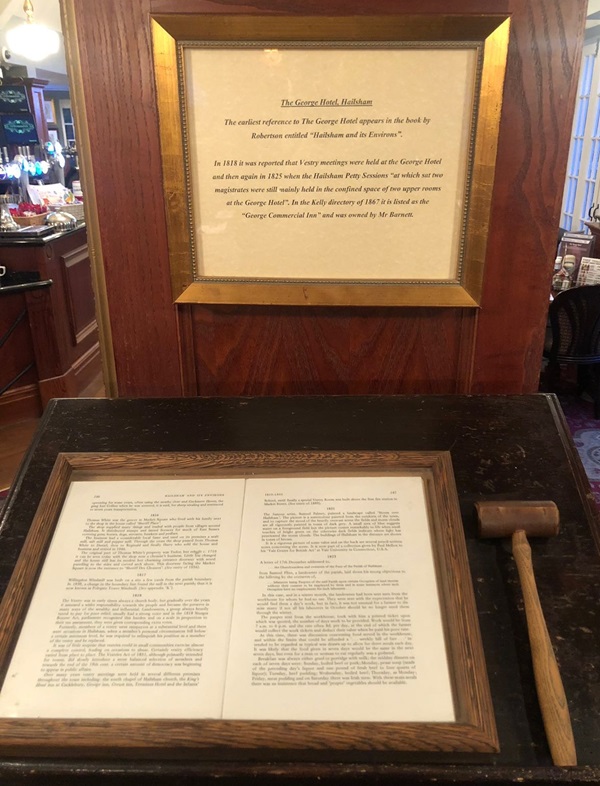
The text reads: The earliest reference to The George Hotel appears in the book by Roberson entitled Hailsham and its Environs.
In 1818 it was reported that Vestry meetings were held at the George Hotel and then again in 1825 when the Hailsham Petty Sessions “at which sat two magistrates were still mainly held in the confined space of two upper rooms at the George Hotel”. In the Kelly directory of 1867 it is listed as the George Commercial Inn and was owned by Mr Barnett.
Text about the rope-making industry in Hailsham.
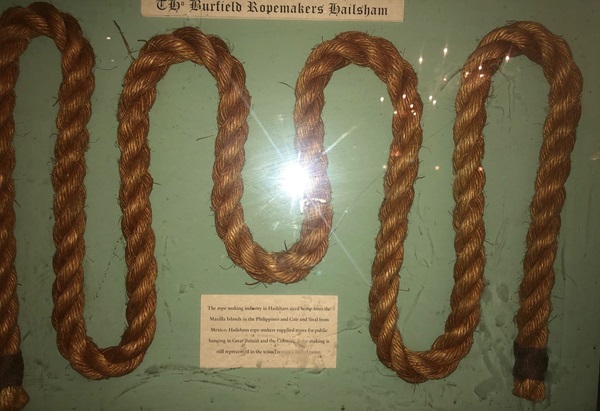
The text reads: The rope-making industry in Hailsham used hemp from Manilla Islands in the Philippines and Coir and Sisal from Mexico. Hailsham rope-makers supplied ropes for a public hanging in Great Britain and the Colonies. Rope making is still represented in the town crest by a ball of twine.
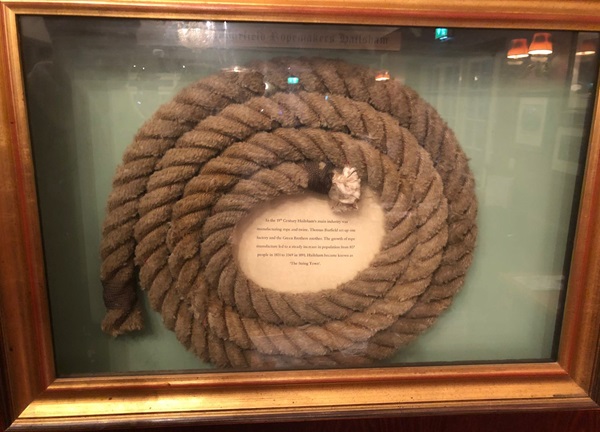
The text reads: In the 19th century Hailsham’s main industry was manufacturing rope and twine. Thomas Burfield set up one factory and the Green Brothers another. The growth of rope manufacture led to a steady increase in population from 807 people in 1801 to 3369 in 1891. Hailsham became known as ‘The String Town’.
Text about Gideon Mantell, and his discoveries.
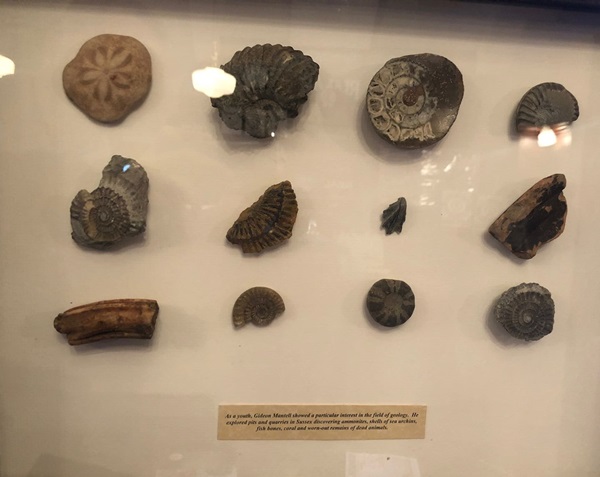
The text reads: As a youth, Gideon Mantell showed a particular interest in the field of geology. He explored pits and quarries in Sussex discovering ammonites, shells of sea urchins, fish bones, coral and worn-out remains of dead animals.
A photograph of the servants of Glyndebourne House, c1905.
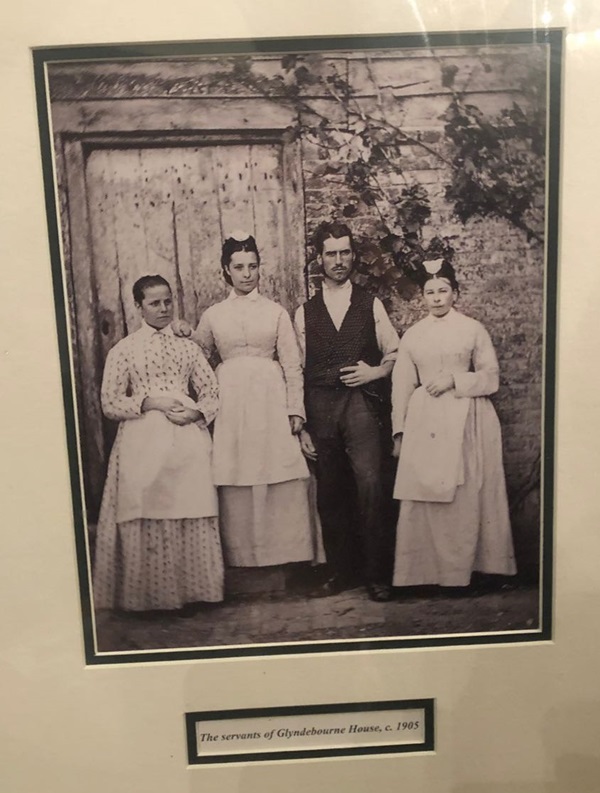
A photograph of The George Hotel, George Street, 1900.
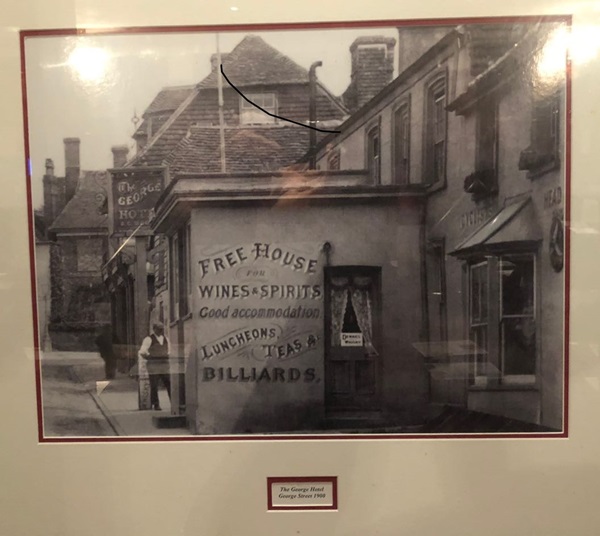
A photograph of Hailsham, High Street, 1902.
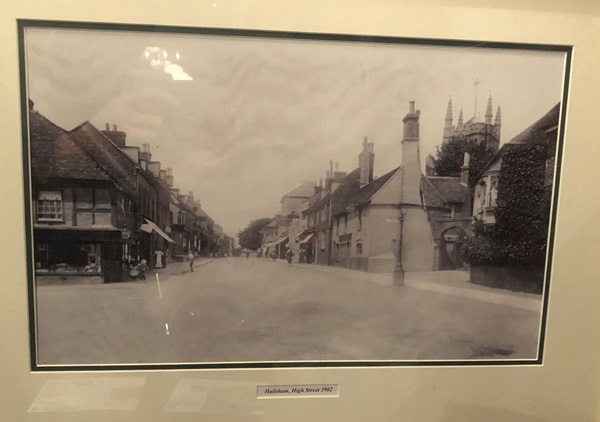
External photograph of the building – main entrance.
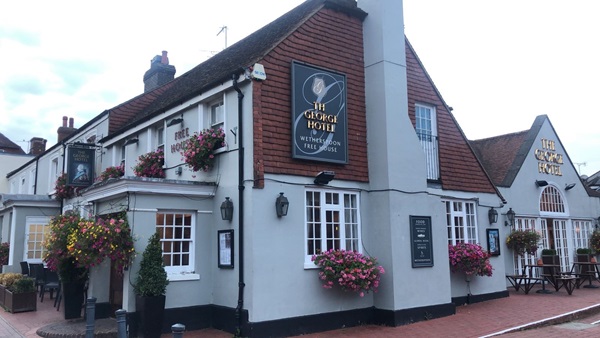
If you have information on the history of this pub, then we’d like you to share it with us. Please e-mail all information to: pubhistories@jdwetherspoon.co.uk